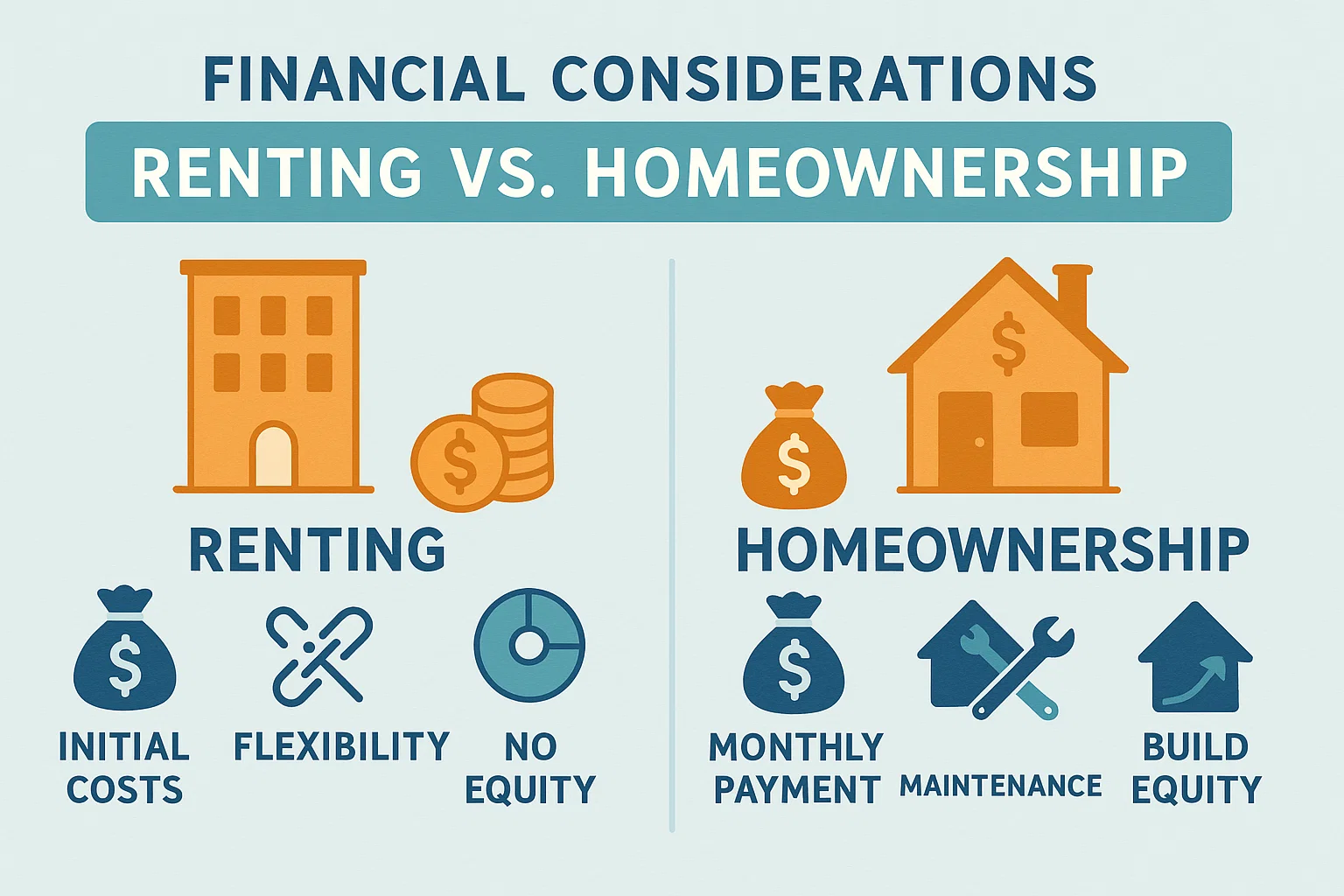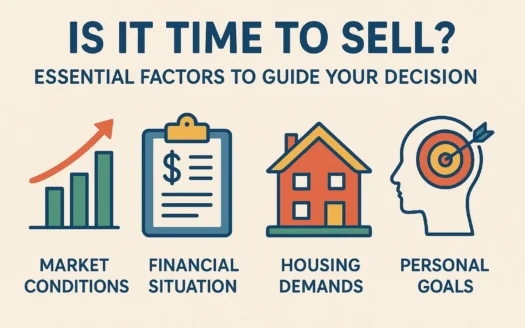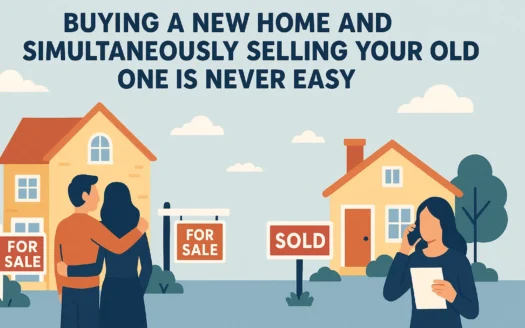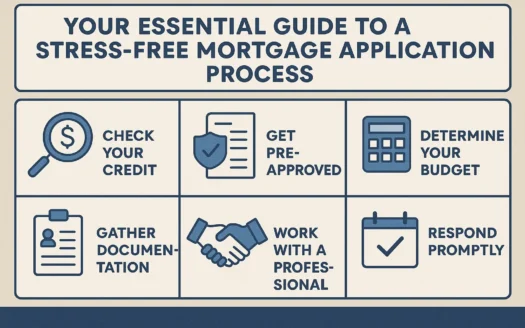Financial Considerations: Renting vs. Homeownership
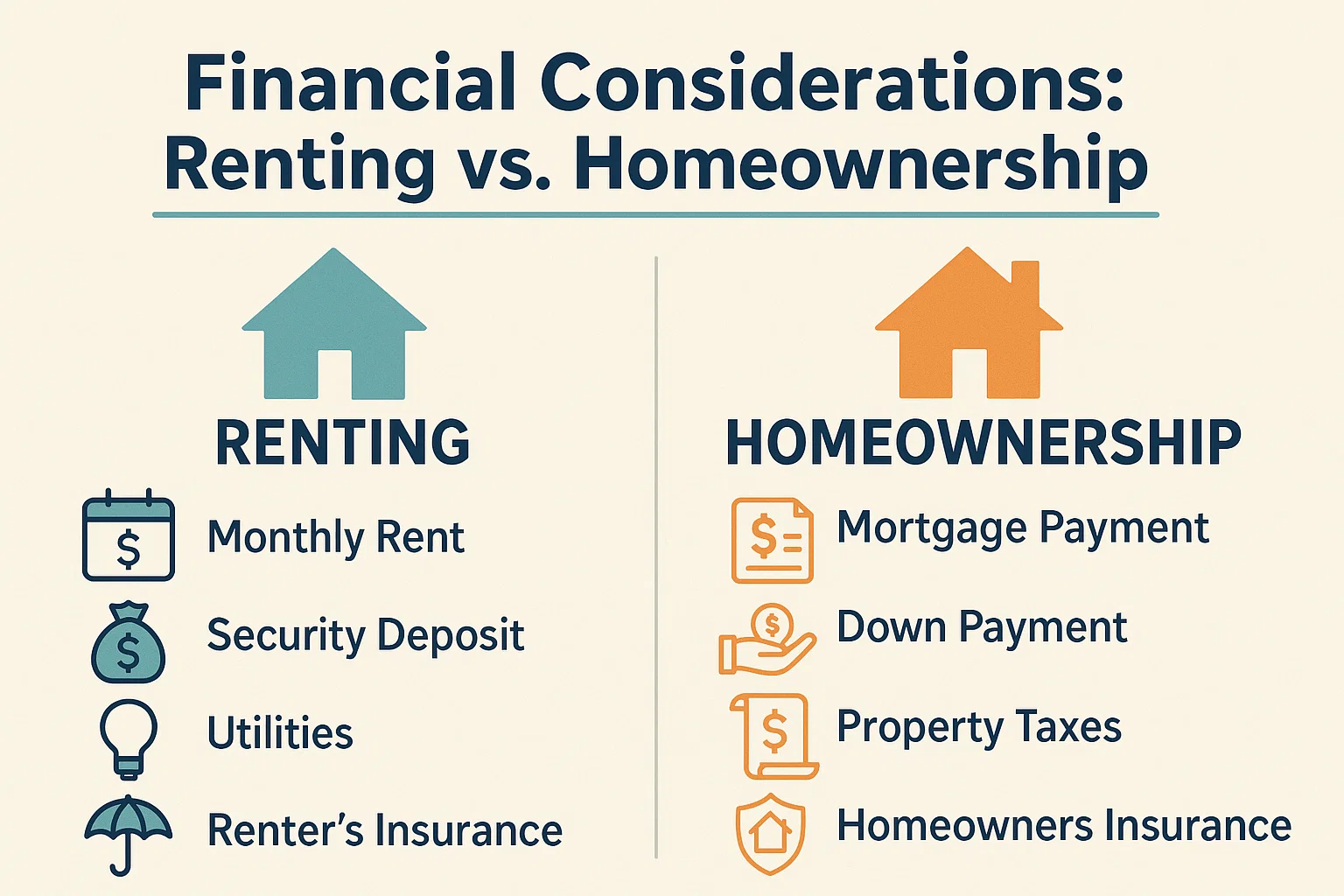
Financial Considerations: Renting vs. Homeownership
Understanding the Financial Landscape
Deciding between renting and buying a home requires careful financial analysis. Key factors include your budgeted monthly rent, target home price, planned length of stay, and potential mortgage rates. Evaluating these elements can reveal whether homeownership offers a financial advantage.
Costs of Renting
- Monthly Rent: A predictable but often escalating expense, with annual increases making long-term budgeting challenging.
- Renters Insurance: While not always mandatory, many landlords require it, adding to monthly expenses.
- Utility Variability: Costs depend on lease terms—some buildings split utilities across residents, complicating personal budget forecasts.
Costs of Homeownership
Property Taxes
Typically included in mortgage payments, property taxes are calculated based on your home’s assessed value. Larger homes often incur higher taxes.
Utilities
Utility expenses rise with square footage and regional climate demands. Newer homes or those with energy-efficient features, such as solar panels, may reduce these costs.
Homeowners Insurance
A necessity for all homeowners, insurance costs vary by location. National averages provide a baseline, but local rates should be researched.
Mortgage Payments
Fixed-rate mortgages offer stability compared to rising rents. Mortgage calculators help estimate monthly payments, which may even undercut rental costs in some markets.
Furnishing and Upkeep
Larger spaces require more furnishings, though these are often one-time expenses. Yard maintenance and snow removal add recurring costs, depending on property size and DIY preferences.
Remodeling and Maintenance
Newly built homes delay remodeling expenses, while warranties on modern appliances reduce maintenance costs. Emergency savings are critical for unexpected repairs.
Beyond Finances: The Value of Homeownership
While financial factors dominate the decision-making process, homeownership also offers intangible benefits. Personalizing a living space and establishing long-term roots in a community carry emotional and lifestyle value that transcends monetary calculations.
